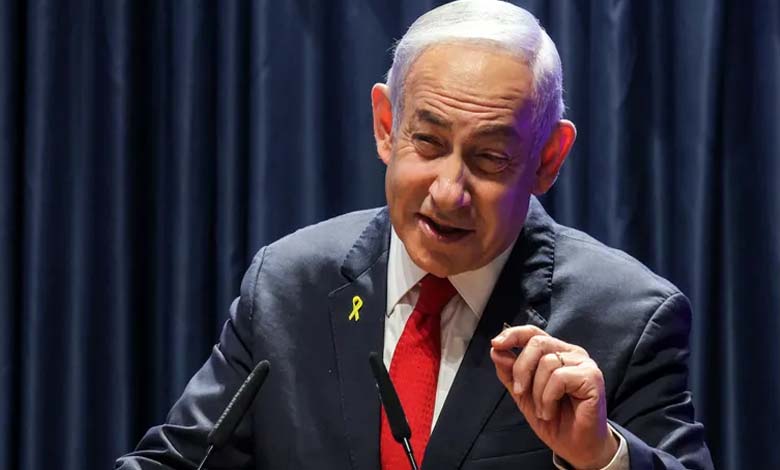Netanyahu hopes to sign a peace agreement with Saudi Arabia before the early 2026 elections

Le rapport précise néanmoins que Netanyahou serait prêt à se contenter d’un seul accord parmi ces deux options diplomatiques, considérant qu’il suffirait à créer un élan positif avant les élections anticipées.
-
Netanyahu once again at the gates of hell… will Trump’s Gaza plan endure?
-
Netanyahu on Trump’s plan: ‘Our army will remain in Gaza’
L’enjeu sous-jacent de cette stratégie réside dans les conditions strictes posées par l’Arabie saoudite comme préalable à toute normalisation. Le ministère saoudien des Affaires étrangères a en effet réaffirmé à Washington que « le royaume ne reconnaîtra pas Israël tant qu’un État palestinien indépendant n’aura pas été établi sur les frontières de 1967, avec Jérusalem-Est pour capitale, et tant que l’agression israélienne contre Gaza ne cessera pas ».
Cette exigence place Netanyahou dans une impasse politique, son gouvernement d’extrême droite refusant toute concession substantielle concernant la question palestinienne.
-
Trump and Netanyahu Announce Gaza Peace Plan Amid Uncertainty Over Hamas’ Response
-
Netanyahu Apologizes to Qatar Over Doha Attack
Malgré ces obstacles, la fin de la guerre actuelle à Gaza et la réussite d’un plan américain visant à instaurer une trêve durable pourraient rouvrir la voie à des discussions sur la normalisation.
Cependant, ce processus risque de s’étendre bien au-delà des prévisions initiales, compte tenu du climat négatif persistant dans l’opinion publique arabe, musulmane et internationale à l’égard d’Israël après la guerre de Gaza. Netanyahou se retrouve ainsi face à une équation difficile : soit il parvient à surmonter les obstacles palestiniens et à conclure un accord historique qui assurerait sa victoire électorale, soit il devra affronter les urnes sans « traités de paix » pour soutenir sa campagne — au risque de voir sa carrière politique s’achever.
-
Smotrich Preempts Trump-Netanyahu Meeting with Six Red Lines on Gaza Plan
-
The Trump–Netanyahu alliance remains too strong to be shaken by the attack on Qatar
achievements ahead of the ballot. According to a report published by “i24News,” the prime minister hopes to secure new peace agreements with key regional and Muslim-majority nations — notably Saudi Arabia and Indonesia — before the elections, in a move aimed at significantly strengthening his political standing.
If realized, such agreements could serve as a crucial political lifeline and a winning card that might reshape the electoral landscape in his favor. The “Kan” network noted that the chances of reaching an accord with Saudi Arabia are “reasonable,” while optimism is much lower regarding a potential agreement with Indonesia, the world’s largest Muslim-majority country, with that prospect described as “low.”
-
Qatar warns against Netanyahu’s plan to violate its sovereignty again
-
Israelis Appeal to Trump to End the Gaza War, Having Lost Faith in Netanyahu
Nevertheless, the report stated that Netanyahu would be willing to settle for securing just one of these two diplomatic breakthroughs, as it would provide the necessary positive momentum ahead of the elections.
At the heart of this strategy lies the stringent set of conditions laid out by Saudi Arabia as a prerequisite for any normalization. The Saudi Ministry of Foreign Affairs has repeatedly informed Washington that “there will be no diplomatic relations with Israel unless an independent Palestinian state is established along the 1967 borders, with East Jerusalem as its capital, and Israeli aggression against Gaza ends.”
-
Qatar warns against Netanyahu’s plan to violate its sovereignty again
-
Israelis Appeal to Trump to End the Gaza War, Having Lost Faith in Netanyahu
This condition places Netanyahu in a complex political dilemma, given that his right-wing government has shown no readiness to make substantial concessions on the Palestinian issue.
Despite these challenges, the potential end of the ongoing war in Gaza — combined with the success of a U.S. initiative led by former President Donald Trump to establish a lasting ceasefire — could reopen limited prospects for renewed normalization talks.
-
Netanyahu’s New Gaza Strategy: Seven Reasons It Risks Failure
-
Gantz pressures Netanyahu to secure a hostage release deal
However, such a process is likely to take far longer than anticipated, particularly amid the widespread negative sentiment toward Israel across Arab, Muslim, and international public opinion following the Gaza war. Netanyahu thus faces a difficult equation: either he manages to overcome the Palestinian obstacles and secure a historic peace deal that could guarantee his electoral victory, or he will have to enter the early elections without the “peace credentials” that might otherwise save his political career.
-
Netanyahu changes Gideon’s Chariots 2… and here is the evacuation schedule in Gaza
-
Hostages or Gaza’s Occupation: What Is Netanyahu’s Priority?
-
Netanyahu calls for accelerating the takeover of Gaza despite warnings
-
Between Street Pressure and Coalition Threats: Scenarios for Netanyahu’s Response to the Gaza Proposal
-
New Zealand Prime Minister: Netanyahu Has Lost His Mind












